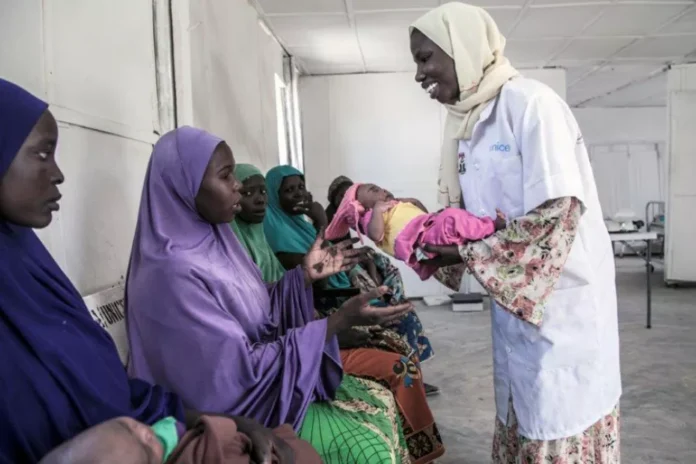By: Babagana Bukar Wakil, Maiduguri
In the face of ongoing insecurity and economic difficulties, more families in Maiduguri are turning to family planning as a vital strategy to manage their households effectively.
Couples who spoke with Dandal Kura Radio International highlighted the increasing adoption of child birth spacing methods to alleviate the stress of raising children in these challenging times.
Alhaji Modu Chimibe, a civil servant with the Borno State Government, shared his decision to embrace child birth spacing.
He noted that this choice helps him maintain economic stability while staying true to his religious and cultural beliefs.
Chimibe, who is the father of ten children, explained the financial burden of education in his family.
Four of his children are currently in secondary school, two have graduated from university, and the remaining four are pursuing higher education.
He stressed that without proper planning, managing such a large family could become overwhelming, not just for his household, but for the community at large.
Similarly, Yagana Umar, a widow who lost her husband to insurgency in 2014, continues to face the challenges of raising eight orphans.
She makes a living by selling *massa* and other snacks at Bolori Market daily, including weekends.
Unfortunately, none of her children are currently enrolled in school. Yagana mentioned that her only daughter was able to graduate from secondary school, but her financial constraints prevent her from supporting the rest of her children’s education or meeting their basic needs, such as shelter, healthcare, and food.
Despite these challenges, Yagana expressed relief that she does not have to pay rent, acknowledging that this would have made her situation even more difficult. She remains hopeful but concerned about her children’s future in a community grappling with insecurity and economic hardship.
Organizations like The Challenge Initiative (TCI) are playing a crucial role in supporting families like those of Alhaji Chimibe and Yagana Umar. TCI has been actively working to increase awareness and access to quality contraceptive services, particularly among adolescents and youth in Nigeria. In Maiduguri, TCI collaborates with the Borno State Ministry of Health and other healthcare organizations, including international NGOs, to deliver these services.
TCI’s approach builds on the success of the Nigeria Urban Reproductive Health Initiative (NURHI), which has been implemented since 2009.
Goal is to increase the use of modern contraceptives, especially among the urban poor, by providing technical assistance and advocacy support to state governments.
The initiative’s efforts include multi-channel campaigns and community-level interventions to change social norms and behaviors, making family planning more accessible and widely accepted.




